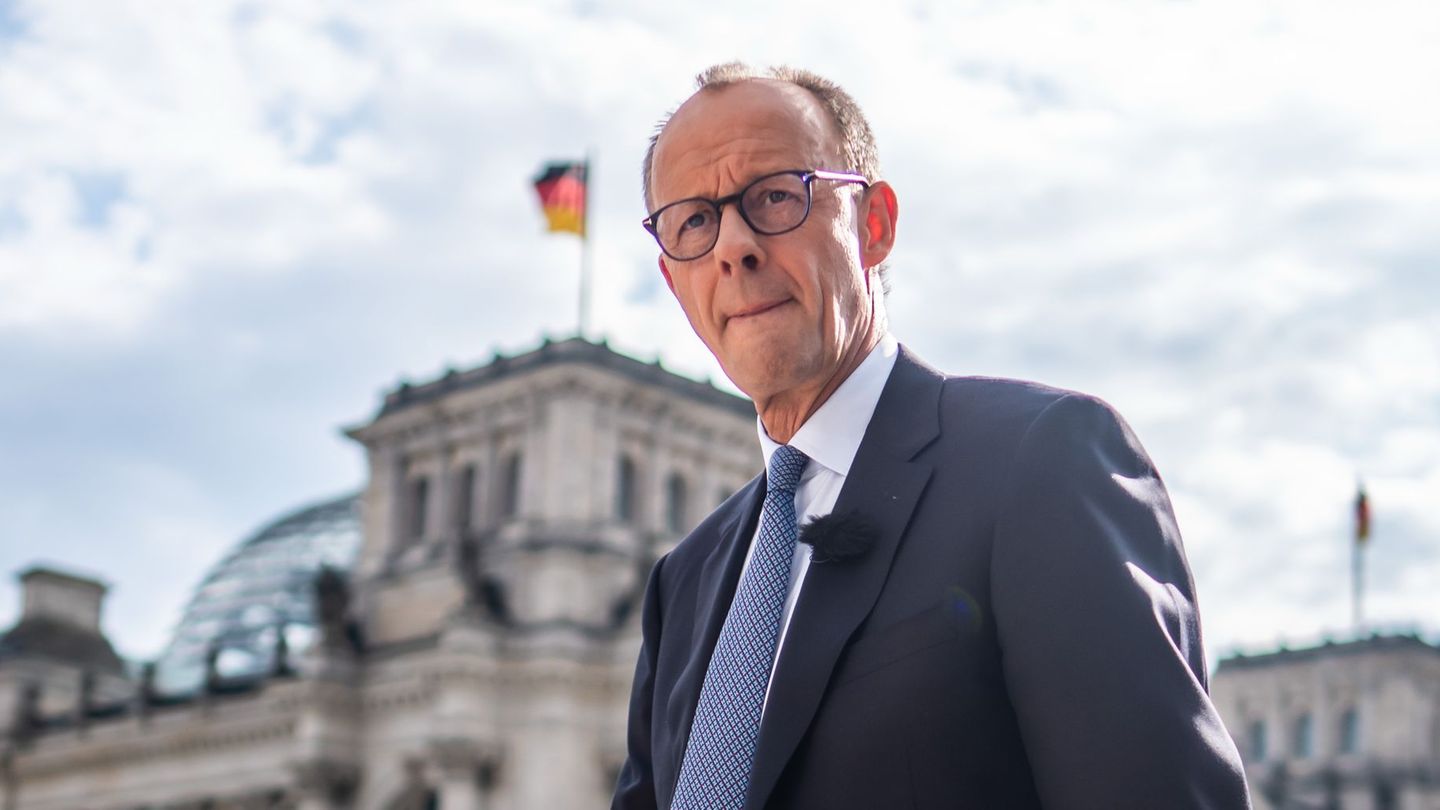Audi is venturing into Formula 1 in 2026. The ambitious project is costing the car manufacturer a lot of money. The boss considers quick success to be unrealistic. Nevertheless, another VW subsidiary could soon follow.
In the fine drizzle of Spa, Audi boss Markus Duesmann proudly positioned himself behind a futuristic racing car. The four rings on the black, red and silver car should show everyone: From 2026 the Volkswagen subsidiary will also be involved in Formula 1.
It was the “perfect time” for entering the racing series and a “very special moment” for the brand, asserted Duesmann and patted the Formula 1 bosses on the back. “A great day,” enthused Formula 1 boss Stefano Domenicali with due enthusiasm.
“Very long-term” project
The car manufacturer will spend hundreds of millions of euros for its involvement in the pinnacle of motorsport. The project is therefore “very long-term”, asserted Duesmann. Audi wants to develop its own engine, but not build a completely new racing team. The future partner should become official by the end of the year.
It is expected that Audi will join the Swiss Sauber racing team. There is probably still haggling over the amount of the purchase price and the scope of the share package. Sauber will lose its current Formula 1 partner Alfa Romeo after the 2023 season. The Italians announced the end of the collaboration, which had just been extended by a year, shortly after the announcement of the Audi plans.
Porsche could soon announce its entry into Formula 1 as another VW brand in alliance with the Red Bull team of world champion Max Verstappen. This double start, combined with the high costs, is quite controversial in the Volkswagen Group. However, Duesmann assured that he and Porsche boss Oliver Blume were “on the same page” in their racing euphoria. Blume will also take over as CEO of VW on September 1st.
Formula 1 had made it palatable for car manufacturers like Audi to get started. From 2023, the tightened budget limit will drop further to $135 million per racing team. It makes an entry financially more predictable, even if Duesmann said about the Formula 1 project: “It’s always good to make money, but we don’t have to.”
Future-oriented orientation of the car industry
It was much more important that the racing series created a rule compromise. From 2026, the hybrid engines are to be operated with 100 percent sustainable fuel. The combustion engine in the unit should only contribute 50 percent of the power, the rest is electric. That fits with the future direction of the auto industry.
“Formula 1 and Audi are both pursuing clear sustainability goals,” assured Duesmann. World Association chief Mohammed bin Sulayem spoke of a “milestone” when the Audi plans were announced. For several years, the Ingolstadt company had haggled with the bosses of the racing series about the framework conditions for the commitment.
With the transformation to electromobility, the XXL project Formula 1 can also be sold internally. “We got the promise that we would get more money to Wolfsburg with Formula 1 than without Formula 1,” said the outgoing VW boss Herbert Diess. At the beginning of April, the board and supervisory board of VW gave the green light for Audi and Porsche to plan “for a possible entry into Formula 1”.
However, Audi does not expect quick successes. Victories or even the fight for the world title in the first year after joining are “not realistic,” said Duesmann. “Within three years we should be very competitive,” added the 53-year-old.
Developing a powerful Formula 1 engine in less than four years is a huge challenge, admitted Audi’s CTO, Oliver Hoffmann. “It’s not a long way, we have to hurry,” he said. There is still a lack of staff and test benches in the motorsport factory in Neuburg an der Donau, so substantial start-up financing is required. “We are not giving any numbers for the entire operation. But the numbers are high,” said Duesmann.
BMW entry should be a warning
The Audi boss knows what he’s talking about. During BMW’s Formula 1 interlude at the beginning of the millennium, he was Head of Development. Back then, too, Sauber was the partner. When the hoped-for success did not materialize despite immense investments, BMW withdrew from the racing series in 2009 after just four years. Toyota’s failed billion-euro project should also be a warning to other manufacturers.
The crux of the matter for Audi and Porsche to get involved was the future engine regulations. Established manufacturers such as Mercedes, Ferrari and Renault want to prevent the technical competitive advantages they have developed over the years from dwindling and thereby reducing their investments. During the summer break, however, the rules were finally approved by the Motorsport World Council.
“Nobody can expect to take part in the Champions League for the first time, go straight to the final and go home with the big trophy,” Mercedes motorsport boss Toto Wolff had already warned. One cannot “simply come and conquer”, but must “give the matter time”. Patience, however, is not a strength of Formula 1.
Source: Stern
I have been working in the news industry for over 6 years, first as a reporter and now as an editor. I have covered politics extensively, and my work has appeared in major newspapers and online news outlets around the world. In addition to my writing, I also contribute regularly to 24 Hours World.




